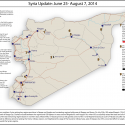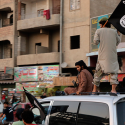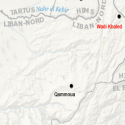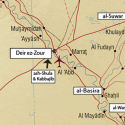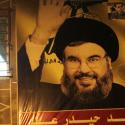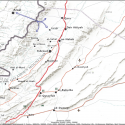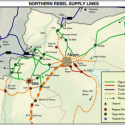ISIS’s Offensive in Syria Shows that U.S. Airstrikes Have Not Blunted Momentum
Aug 28, 2014 - Institute for t...Secretary of Defense Chuck Hagel told reporters that U.S. airstrikes “have stalled ISIL's momentum” after two weeks of bombarding ISIS positions in Northern Iraq. The Islamic State of Iraq and al-Sham has not stalled under U.S. pressure. Rather, since the fall of Mosul and despite U.S. airstrikes, the insurgent army has continued a successful and spectacular offensive in Syria. Their gains nearly equal in scale the seizure of northern Iraq in June. The insurgent army’s latest triumph is the capture of Assad’s Tabqa air base in Eastern Syria.


